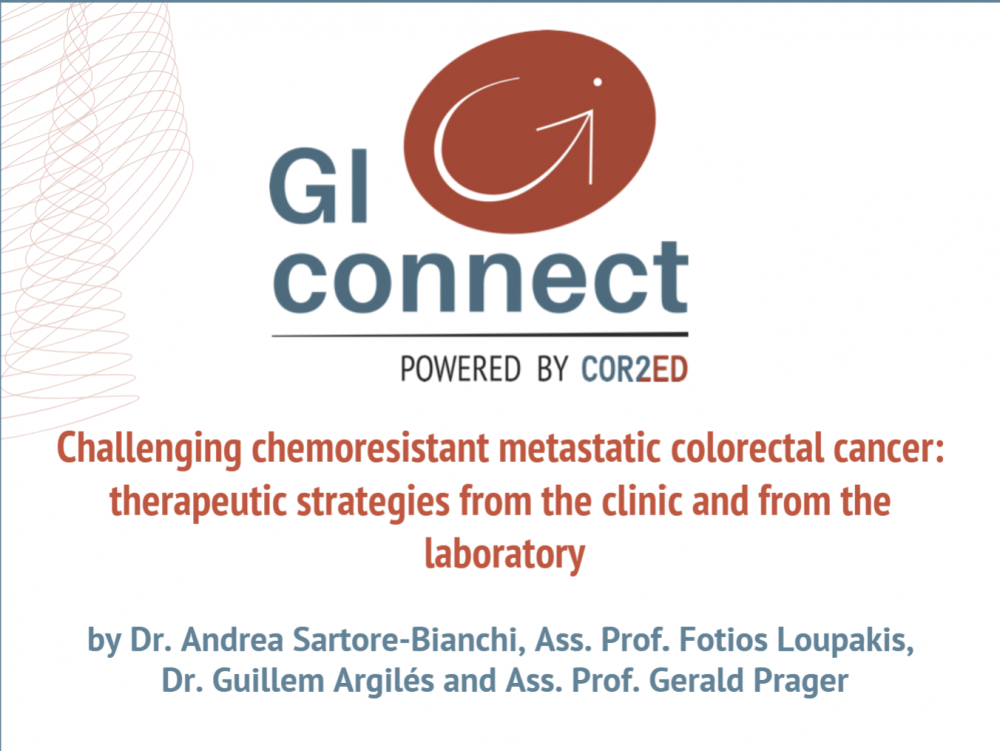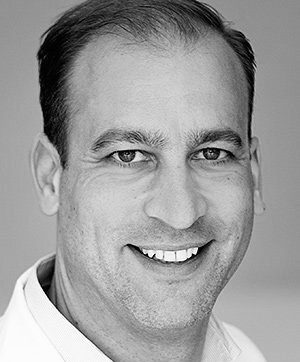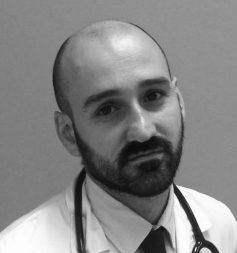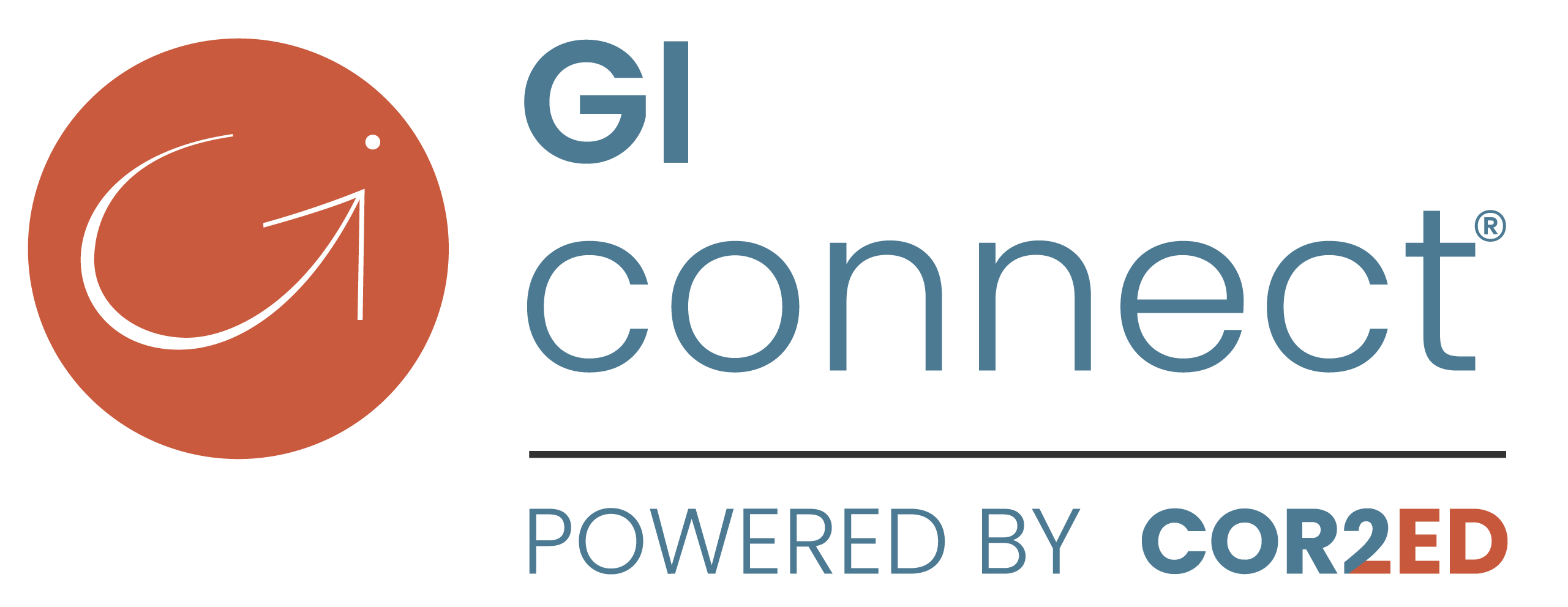GI CONNECT members authored a paper ‘Challenging Chemoresistant Metastatic Colorectal cancer: therapeutic strategies from the clinic and from the laboratory’ in Annals of Oncology. Download slides of the key highlights

Dr Gerald Prager is an Associate Professor of Medicine, Board Certified for Internal Medicine Board and Certified for Haematology and Medical Oncology. In 2009, he received his M.D. from the University of Vienna. Currently, Dr Prager is Director of the Colorectal Cancer Unit of the Department of Medical Oncology at the Medical University of Vienna. He is also a member of the ESMO 2014 Scientific Committee. The research interest of his lab focuses on (tumour-) angiogenesis via regulation of endothelial cell survival and migration by cell / extracellular-matrix interaction. Through his clinical training in haemato-oncology, he became a member of the sought-after group of medical researches. He achieved his expertise in international renowned labs at University of California, San Diego, the Norris Cancer Center, Los Angeles and the Department of Vascular Biology, Mississippi University for Women (MUW). His work is honoured by 19 international awards and resulted in publications in international highly renowned journals. Dr Prager’s young research group is embedded in an international cancer research campus associated with Medical University of Vienna (MUV).
Amgen, Arcus, Astellas, AstraZeneca, Bayer, BMS, CECOG, Incyte, Lilly, MSD, Merck Serono, Pierre Fabre, Roche, Servier, Takeda
Dr Guillem Argilés obtained his medical degree at the Vall d’Hebron University Hospital in Barcelona, Spain. He later obtained his M.D., supervised by José Baselga M.D., in 2006 at the same institute. In 2010, he joined the Gastrointestinal Malignancies Division led by Josep Tabernero M.D., Ph.D. Dr Argilés currently works in the Gastrointestinal Malignancies and Developmental Therapeutics Divisions of the same institute, where his research is focused on chemorefractory colorectal cancer, personalized medicine, as well as the molecular biology of colorectal cancer.
Andrea Sartore-Bianchi is the Director of the Division of Clinical Research and Innovation at Grande Ospedale Metropolitano Niguarda in Milano, Italy, and Associate Professor of Oncology at the University of Milano. He received his MD and postgraduate degree in Oncology at the University of Pavia, Italy, and subsequently conducted preclinical research at Brown University, Providence, RI, USA.
His main clinical and research interests include precision oncology and the treatment of gastrointestinal cancers, particularly colorectal carcinomas, focusing on biomarkers of sensitivity/resistance to targeted therapies. He is principal and co-investigator in Phase I-III clinical trials for solid tumours and carried out initial studies paving the way for the use of RAS and Her2 as tumor tissue/ctDNA biomarkers in colorectal cancer. He has published 200 peer-reviewed articles in various medical journals with a H-index of 62 (Scopus).
Amgen, Bayer, Sanofi and Servier Pharmaceuticals.
Other programmes of interest
ADCs in HER2+ metastatic breast cancer and management of adverse events
Consensus-based guidance for clinicians and patients
Metastatic breast cancer: Understanding HER2-low and HER2-ultralow classification
A novel therapeutic framework
Experts
Dr Komal Jhaveri, Oncology Brothers (Moderators)Thriving beyond an EP-NEC diagnosis
Perspectives on treatment and care
Navigating extrapulmonary neuroendocrine carcinoma (EP-NEC)
Insights for patients and care partners
ESMO 2025: Gastric and gastroesophageal cancer insights for clinical practice
On-demand materials from an Experts Knowledge Share event






 Downloadable
Downloadable  20 MIN
20 MIN
 Feb 2026
Feb 2026 








